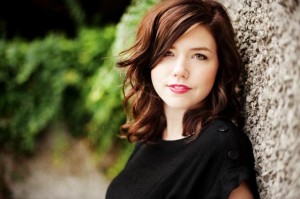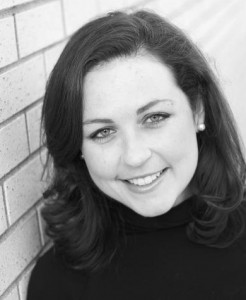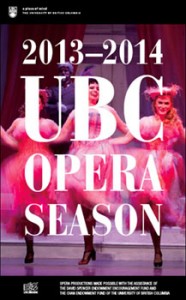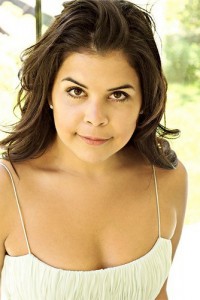If you’re coming to Carmen on Sunday, June 23, please note that Broadway will be closed between Blenheim and Macdonald for the Greek Day Festival.
New OperaTONIC Blog!
Please update your bookmarks as we move our OperaTONIC blog to a new address.
Our new site features richer graphics and more information about the UBC Opera Ensemble, including a preview of our 2013–2014 Season and fantastic brochure!
Carmen Casting
Carmen casting is now out, so you can see when your favourite singers are performing.
With shows starting in less than a month, make sure to get your tickets today!
Order your tickets here or call 604.822.6725 for more information.
June 22, 28, 30
Carmen, Emma Parkinson
Don José, Kwangmin Brian Lee
Micaëla, Natascia Dell’erba
Toreador, Kyle Lehmann
Frasquita, Julia Rooney
Mercédès, Christina Kent
Dancaïro, Alireza Mojibian
Remendado, Sungsan Oh
Moralès, Christopher Max van Wyck
Zuniga, Geoffrey Schellenberg
Lillas Pastia, Brandon Thornhill
June 23, 27, 29
Carmen, Francesca Corrado
Don José, Weilong Tao
Micaëla, Bahareh Pourselami
Toreador, José Ramirez-Solano
Frasquita, Katie McCullough
Mercédès, Rachel Stewart
Dancaïro, Christopher Max van Wyck
Remendado, William Grossman
Moralès, Alireza Mojibian
Zuniga, Brandon Thornhill
Lillas Pastia, Geoffrey Schellenberg
In Episode 2 of the Dialogues des Carmelites Video Blog Anna takes you onstage, backstage, and through the orchestra pit
Check out Episode 1 of the video blog for Dialogues des Carmelites
Francesca Corrado is working hard onstage and in the costume shop
 Dialogues des Carmélites has been such a wonderful experience for me and working with David Agler and Judith Forst is a valuable opportunity. I am playing the role of Mother Marie. It was interesting researching the historical background of the life of Mother Marie. She was of noble birth and married a noble man. Her husband was exiled and she eventually became a widow. It was at that time she and her three daughters entered the convent together.
Dialogues des Carmélites has been such a wonderful experience for me and working with David Agler and Judith Forst is a valuable opportunity. I am playing the role of Mother Marie. It was interesting researching the historical background of the life of Mother Marie. She was of noble birth and married a noble man. Her husband was exiled and she eventually became a widow. It was at that time she and her three daughters entered the convent together.
I have the luxury of seeing this opera from two different perspectives. The first being performing onstage, and the second working behind the scenes in the costume shop. Seeing a production come together has always fascinated me. It is a long process getting a performer ready in their costume. First, I schedule everyone to come into the costume shop so we can take their measurements. Next, myself along with the other costume work studies and our costume intern have the opera ensemble members come in and try on a costume we have chosen for them. Sometimes the costume works and other times it is a trial and error process. After we have chosen their costume, alterations need to take place before the final product is ready. Once we get going with our dress rehearsals, we then take notes during our first few runs. At this time we may notice if any further alterations or adaptations need to be made. We may find that we want to change someone’s costume because we simply do not like the way it looks onstage. Nancy Hermiston helps us in the entire costume process.
Working behind the scenes is something I feel every performer should experience. Many people do not realize the amount of hours it takes to put on a production. This behind the scenes work aids students in preparation for the professional world. I find students have more respect when they realize how much work is involved. Come and support the UBC Opera Ensemble’s production. This is an opera you do not want to miss!
-Francesca Corrado
Chelsea Rus discusses Blanche’s psychological journey in Dialogues des Carmélites
 “Blanche de la Force is on the last of your list of heroines”- from Song on the Scaffold by Gertrude von le Fort.
“Blanche de la Force is on the last of your list of heroines”- from Song on the Scaffold by Gertrude von le Fort.
This quote is derived from my primary source of research for Blanche’s character. This is an arguable statement for it is true Blanche is not your typical Grand Opera heroine, however she does eventually conquer the one thing that has menaced her life since birth: Fear of fear.
Fear of fear includes everything from fear of death to being scared that the stairs slip from underneath her feet. Blanche was literally born in fear. Her mother was thrown into early labour after a frightening mob attack on her carriage just hours before and died giving birth to Blanche. Blanche has endured this intense anxiety or panaphobia since her first breath, and by the time the opera takes place she is 18. She has always been seen as weak and timid like a“little rabbit”, but by now she has a great deal of shame about her fear and goes to tremendous efforts to hide it from everyone. Blanche wants no more pity and to be seen as a brave adult.
On the other hand, Blanche by going to the convent in search for security from the terrors of the revolution displays incredible amounts of courage. In doing this, she defies her father, which in 18th century France was unheard of, and leaves her beloved brother to find her own peace. Only to find out that the Carmelite life is not everything she thought it to be for she is constantly tested and pushed by her superiors. Early on as a novice she comes face to face with the terrifying death of her beloved Prioress. In the first act alone, she displays all of the traits of strength within her. However, her potential is not realize until the very end.
In this opera Poulenc masters the art of psychological drama. He uses musical motives to indicate Blanche’s fear even when she does not admit to being scared right away. In this sense, we can predict her panic attacks and more importantly, we can tell when she is hiding her fear. The music acts as its own form of subtext and depicts the characters’ mental state so clearly that the audience can subconsciously experiences their inner dialogues.
– Chelsea Rus
Casting is out for Dialogues des Carmélites.
 Check out which night your favourite singers are performing in Francis Poulenc’s Dialogues des Carmélites.
Check out which night your favourite singers are performing in Francis Poulenc’s Dialogues des Carmélites.
A brilliantly moving and tragic French opera, Dialogues des Carmélites is based on historical events that took place at a monastery of Carmelite nuns during the French Revolution. Filled with lush harmonies characteristic of Poulenc’s style, the opera shows the resolute determination and emotional plight of the Carmelite nuns whose faith is put to the ultimate test. UBC Opera welcomes internationally acclaimed artists, mezzo-soprano Judith Forst, and conductor David Agler, in its presentation of this French masterpiece.
In French with English surtitles™Libretto by Francis Poulenc
Nancy Hermiston Director
David Agler Conductor
UBC Opera Ensemble with the UBC Symphony Orchestra
February 7, 8, 9 | 7:30 PM
February 10 | 2:00 PM
Chan Centre for Performing Arts
Order your tickets quickly because there are limited seats still left. For tickets visit: http://www.music.ubc.ca/student-ensembles/opera/tickets-and-subscriptions.html
Thursday 7th/Saturday 9th
Marquis de la Force – Peter Monaghan
Sister Blanche – Chelsea Rus
The Chevalier – Weilong Tao
Prioress, Madame de Croissy – Judith Forst
Madame Lidoine – Lindsay Moore
Mother Marie – Deborah Blakesley
Sister Constance – Erin Milley-Patey
Mother Jeanne – Christina Kent
Sister Mathilde – Joseryl Beckley
Mother Gerald – Rebecca Paulding
Sister Catherine – Julia Rooney
Sister Felicity – Anna Theodosakis
Sister Claire – Katie Miller
Sister Antoine – Emily Nelson
Sister Valentine – Claire McLaughlin
Sister Gertrude – Katie McCullough
Sister Alice – Christine Robinson
Sister Anne of the Cross – Nicole Brooks
Sister Martha – Heny Janawati
Sister St. Charles – Yichan Shu
l’Aumônier – Kevin Ching
1st Officer – Saygin Ozgu
2nd Officer – Micah Schroeder
Jailer – Max van Wyck
Thierry – Eric Schwarzhoff
M. Javelinot – Brandon Thornhill
Friday 8th/Sunday 10th
Marquis de la Force – Jihwan Cho
Sister Blanche – Brittany Fouche
The Chevalier – Brian Lee
Prioress, Madame de Croissy – Judith Forst
Madame Lidoine – Natascia Dell’erba
Mother Marie – Francesca Corrado
Sister Constance – Taylor Pardell
Mother Jeanne – Courtney Bridge
Sister Mathilde – Rachel Stewart
Mother Gerald – Eden Tremayne
Sister Catherine – Paula Berry
Sister Felicity – Emily Wilkerson
Sister Claire – Evanna Chiew
Sister Antoine – Ophira Calof
Sister Valentine – Hillary Young
Sister Gertrude – Gwen Yearwood
Sister Alice – Arianna Ervin
Sister Anne of the Cross – Nicola Davies
Sister Martha – Stacy Ahenkora-Darko
Sister St. Charles – Simone McIntosh
l’Aumônier – Harout Markarian
1st Officer – Jonny Michel
2nd Officer – Cameron Killick
Jailer -DJ Calhoun
Thierry – Geoffrey Schellenberg
M. Javelinot – Jordan Collalto
Alumna Charlotte Burrage joins the COC’s Ensemble Studio
 Mezzo-Soprano Charlotte Burrage has been chosen to be a part of the Canadian Opera Company’s prestigious Ensemble Studio. Read more about the young artist program and Charlotte’s success in Trish Crawford’s article in the Toronto Star.
Mezzo-Soprano Charlotte Burrage has been chosen to be a part of the Canadian Opera Company’s prestigious Ensemble Studio. Read more about the young artist program and Charlotte’s success in Trish Crawford’s article in the Toronto Star.
UBC Opera Alumna Simone Osborne featured in the Vancouver Sun
Vancouver connoisseurs of vocal music are well aware of soprano Simone Osborne, a local now well on her way to a high-powered singing career. Last season she sang the title role in Gounod’s Roméo et Juliette for Vancouver Opera; she starts the new year with a performance at Carnegie Hall. Just before Christmas, Simone spoke with me from Texas about her developing career, and the complicated life that it entails, having completed a gig in Switzerland.
“Zurich was a gala celebration of Verdi’s bicentennial, a 120-person choir and a full orchestra in a gigantic indoor stadium—Verdi’s biggest hits. A lot of non-Verdi fans in the audience got their introduction to him, and it looks like they may take the concert on tour.”
Simone was in Dallas to participate in a benefit for the Music Academy of the West, a project of the great American mezzo Marilyn Horne, now a particularly important person in Osborne’s life. “I’m so grateful for all the training I received there. And it was perfect timing—I flew home to drop off my new puppy with friends in Toronto, and then on here to Dallas.” But there is also a secret West Coast agenda: “I’m going to surprise my mother on her doorstep on Christmas Day. I’ve arranged with friends to make sure she will be home.”
It will be a fleeting visit before the “Marilyn Horne Song Celebration” in mid-January. “We will be celebrating Marilyn’s birthday as part of this concert. I am so fortunate to be able to sing in Carnegie Hall, and with Warren Jones on the piano. He’s a true genius, and this is not just soprano-speak. You have never heard anything like it when he touches the piano, even just in his New York apartment it is magical. Then I move on to Scotland, working with Malcolm Martineau.”
A mentor like Marilyn Horne is remarkable, and I wondered how she and the great diva crossed paths. “It was in the first year that I really did a lot of auditions. I was still an undergrad at UBC, but I went to the Musical Academy of the West in Santa Barbara. I had no idea she would be there. I got up to the stage and turned around and there right smack in the middle of the panel was Marilyn Horne! I thought This cannot be true, and then this incredibly focussed voice said, ‘Okay, darling, now what are you going to start with?’ She later told the press that the first aria I sang made her cry — I couldn’t see because they were quite far away, so when I read that, my heart skipped a beat! She has been taking care of me every since — such an incredible mentor to so many young musicians, a grande dame in the true sense of the term, a wonderful lady.”
In a musical world where fierce competition between singers can be intense and even destructive, I wondered about Horne’s mentoring style. “She tells stories in which her own mentor, Lotte Lehmann, was very hard on her. Marilyn can certainly deliver tough love when needed, but I think she experienced the opposite of this generosity in her own young years. She told me, ‘I realized back then that I would never say those things to another singer, never treat a young person in that way.’ She’s had a number of Canadian singers in her program over the years, and she says I need to be less humble, less Canadian. She finds us too self-depreciating and too accommodating. One day she was tearing apart my musical choices, and then she said, ‘Someday, kid, you’re going to have to learn your own worth!’ She can be hard on you, but always to help you find your own balance.”
For instrumentalists building careers, the younger the better seems to be the new rule, but this doesn’t work with singers who must develop physically as well as musically. Osborne was launched at twenty-one, when she won the 2008 Metropolitan Opera National Council Auditions. She’s still very young indeed to be making her mark. “I’m often asked whether my age is a problem, but it’s just my reality. I used to get quite anxious and wonder whether I was making the right decisions—would I be a flash in the pan, just another young soprano who sang too much too soon and lost her voice? A lot of people were telling me to slow down and not burn myself out, but I’ve learned it’s a balancing art— what to accept and when and where. It’s challenging to be hired so early for things. I’m already booked for 2016, and how can you really know whether you are going to be ready to sing a big role then?”
And career pressures? “The industry is a little different for singers these days. We have to become chairmen of our own boards, and decide what is right for us and what is wrong. It can also be financially challenging, because if you accept all the work you’re offered your voice can take a hit, but if you don’t accept the work, your rent cheque may bounce!
“My mother always told me that the essence of life was balance, and I always thought ‘Oh she’s a scientist, she doesn’t get it.’ I was this dramatic kid who wanted to sing rather than clean my room. And then of course when you get into your twenties, you inevitably realize your mother was right all along.
“What singers do is so interwoven with who we are as persons, because our instrument is ourselves. You do want to work with certain people, and maybe be the youngest person ever to sing this role, but you can’t be singing Mimi at twenty-five—your voice won’t last.
“And there are so many facets to opera that people don’t see. They only notice the grand sets and the champagne parties. They don’t ever see that poor woman whose entire job is to carry around my twenty-pound costume train, which mustn’t ever get rumpled or touch the floor, on that long journey back and forth to the dressing room, and how hard that is. But I will take five really great nights singing on stage, with terrific people and great music, in exchange for those 360 other days a year of really hard work.”
Osborne’s career is international, but she treasures her West Coast roots and connections. “I run in the mornings before rehearsals, and I find I am always looking for water, a river or a pond or something, so this must be a Vancouver thing in my subconscious.
“I really want to drive home that I am a Vancouver girl at heart, and I am really grateful to Nancy Hermiston and all my other teachers who helped start all this. Irving Guttman was a real mentor, and Judith Forst who always keeps track of what I’m doing. I hope to get back as much as I can to sing, because I’m really a West Coast girl and always will be one.
“Every morning I wonder, When did this become my life? How lucky I am to be here, and how many other people made it possible for me!”

 Follow
Follow


